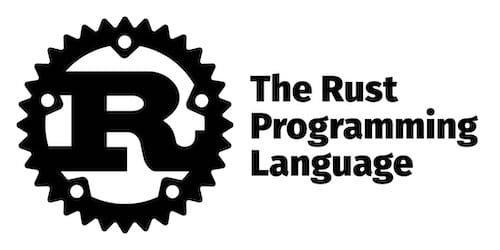How To Install Rust on Fedora 41

Rust is a systems programming language that prioritizes performance, reliability, and memory safety. Its unique features have made it a popular choice among developers looking to build efficient and safe applications. This article serves as a comprehensive guide to installing Rust on Fedora 41, providing step-by-step instructions and troubleshooting tips to ensure a smooth installation process.
Understanding Rust and Its Benefits
Rust is designed to empower developers to create fast and reliable software. Some of its standout features include:
- Memory Safety: Rust eliminates common programming errors such as null pointer dereferencing and buffer overflows through its ownership model.
- Concurrency: The language’s design allows for safe concurrent programming, making it easier to write multi-threaded applications.
- Performance: Rust provides performance comparable to C and C++, making it suitable for system-level programming.
Rust has gained traction in various domains, including web development, game development, and embedded systems. Its growing community and ecosystem provide extensive libraries and frameworks that enhance productivity.
Prerequisites for Installing Rust on Fedora 41
Before diving into the installation process, ensure that your system meets the following prerequisites:
-
- Fedora 41: Make sure you are running the latest version of Fedora.
- System Updates: It’s essential to keep your system updated. Run the following command in your terminal:
sudo dnf update-
- Required Packages: You may need some development tools. Install them using:
sudo dnf groupinstall "Development Tools"Method 1: Installing Rust Using DNF
The simplest way to install Rust on Fedora 41 is through the DNF package manager. This method ensures that you get the latest stable version of Rust directly from the Fedora repositories.
Step-by-Step Instructions
-
- Open Terminal: You can find the terminal in your applications menu or use the shortcut
Ctrl + Alt + T. - Install Rust and Cargo: Run the following command to install Rust along with Cargo, which is Rust’s package manager and build system:
- Open Terminal: You can find the terminal in your applications menu or use the shortcut
sudo dnf install rust cargo-
- Verify Installation: After installation, check if Rust was installed successfully by running:
rustc --versionThis command should display the installed version of Rust.
Method 2: Installing Rust Using rustup
The recommended way to install Rust is through rustup, which allows you to manage multiple versions of Rust easily. This method provides more flexibility than installing via DNF.
Step-by-Step Installation Guide
-
- Open Terminal:
- Download rustup Installer: Run the following command to download and execute the rustup installation script:
curl --proto '=https' --tlsv1.2 -sSf https://sh.rustup.rs | sh-
- Select Installation Option: During installation, you will be prompted to proceed with the default installation. Press
1, then hitEnter. - Add Cargo to PATH: To ensure that Cargo’s binaries are available in your terminal session, run this command:
- Select Installation Option: During installation, you will be prompted to proceed with the default installation. Press
source $HOME/.cargo/env-
- Verify Installation:
rustc --versionThis should confirm that Rust is installed correctly.
Configuring Your Rust Environment
A successful installation of Rust requires some configuration to optimize your development environment.
Setting Up Environment Variables
The rustup installer automatically sets up necessary environment variables. However, if you encounter issues accessing Cargo commands, you may need to add the following line to your shell configuration file (e.g., .bashrc, .zshrc):
# Add Cargo's bin directory to PATH
export PATH="$HOME/.cargo/bin:$PATH"This ensures that you can run Cargo commands from any terminal session.
Managing Rust Versions with rustup
The rustup tool allows you to manage different versions of Rust easily. To update your installation or switch between stable and nightly versions, use the following commands:
-
- Update Rust:
rustup update-
- Select Default Version:
rustup default stable-
- Add Nightly Version (if needed):
rustup install nightlyCreate and Run Your First Rust Program
Your first step into coding with Rust can be an exciting experience. Here’s how to create a simple “Hello, World!” program using Cargo.
Create a New Project Using Cargo
-
- Create a New Project Directory:
Cargo new hello_world
cd hello_world-
- Edit main.rs File:
Navigating into your project directory, open the file located at src/main.rs. Replace its contents with the following code:
fn main() {
println!("Hello, world!");
}-
- Compile and Run Your Program:
You can now compile and run your program using Cargo with this command:
Cargo runIf everything is set up correctly, you should see “Hello, world!” printed in your terminal.
Troubleshooting Common Installation Issues
If you encounter any problems during the installation of Rust on Fedora 41, here are some common issues along with their solutions.
- PATHError: Command Not Found:If you receive an error stating that a command is not found after installation, ensure that your PATH variable includes Cargo’s bin directory as described earlier.
- Mismatched Dependencies:If certain dependencies fail during installation via DNF, consider updating your system packages or installing missing development tools using the command mentioned in prerequisites.
- Scripting Errors with rustup:If rustup fails during installation due to network issues or script errors, check your internet connection or try running the command again after some time.
Uninstalling Rust from Fedora 41
If you need to remove Rust from your system for any reason, follow these steps for a clean uninstallation.
-
- If Installed via DNF:
sudo dnf remove rust cargo-
- If Installed via rustup:
You can uninstall rustup along with all associated toolchains by running this command in your terminal:
rustup self uninstallCongratulations! You have successfully installed Rust. Thanks for using this tutorial for installing Rust Programming Language on Fedora 41 system. For additional help or useful information, we recommend you check the Rust website.